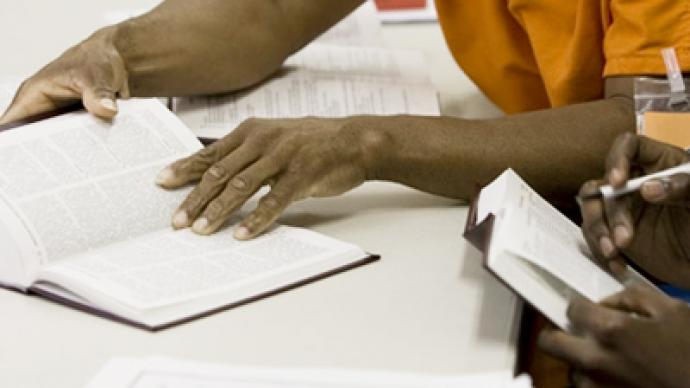US prison bans all books – except The Bible

A jail in the US state of South Carolina has banned all book and reading materials except for the Christian Bible. Critics argue there is simply no good reason to ban books.
The American Civil Liberties Union has filed a lawsuit arguing the Berkeley County detention center’s policy is unconstitutional. “Our inmates are only allowed to receive soft back bibles in the mail directly from the publisher. They are not allowed to have magazines, newspapers, or any other type of books,” a prison employee once said in an email to Prison Legal News, who is also working to sue alongside the ACLU."Prisoners who are incarcerated for extended periods of time have been deprived of access to magazines, newspapers and books – other than the Bible – for months or even years on end,” noted the ACLU. There is no on-site library at the prison and since 2008 Prison Legal News and books, including those which assist inmates with protecting their health and others that outline their legal rights have been returned to sender.The prison now argues that their policy only bans publications with staples, nudity or near-nudity. The ACLU said the policy of "unconstitutionally refusing to allow prisoners to receive any materials that contain staples or pictures of any level of nudity, including beachwear or underwear" in effect still bans all written material – including, books, magazines and newspapers.Most magazines and newspapers contain adverts with show swimwear or underwear, and contain stapes. Many books do as well. "This is nothing more than an excuse by jail officials to ban books and magazines for no good reason," David Shapiro, staff attorney with the ACLU national prison project told The Guardian. "There is no justification for denying detainees access to periodicals and in the process cutting them off from the outside world.""[Jail officials] are failing to serve the detainees and the taxpayers of South Carolina. Helping prisoners rehabilitate themselves and maintain a connection to the outside world by reading books and magazines is a key part of what should be our larger and fiscally prudent objective of reducing the number of people we lock up by lowering recidivism rates," added Victoria Middleton, executive director of the ACLU of South Carolina.














